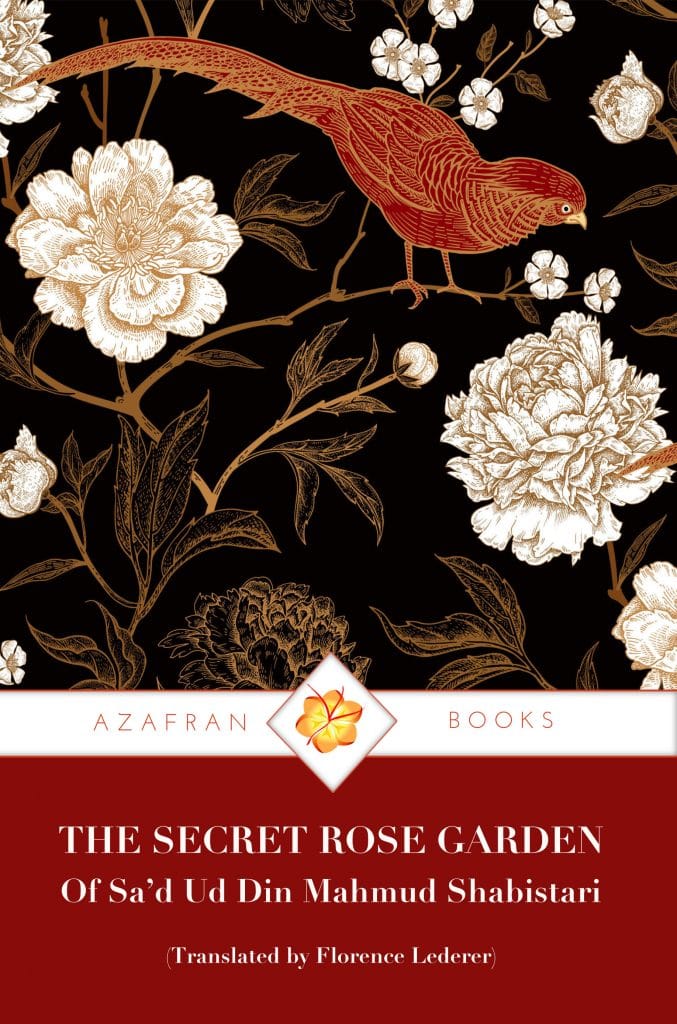Shabistari’s The Secret Rose Garden (1317 A.D.) is considered to be one of the greatest classical Persian works of the Islamic mystical tradition known in the west as Sufism. It was written in response to seventeen queries concerning Sufi metaphysics posed to ‘the Sufi literati of Tabriz’ by Rukh Al Din Amir Husayn Harawi (d. 1318). Stressing the One Light that exists at the heart of all religious traditions, Shabistari’s work is one of the clearest and most concise guides to the inner meaning of Sufism, and offers a stunningly direct exposition of Sufi mystical thought and sciences dependent on them in poetic form. Shabisteri’s work is a perennial witness to the capabilities and destiny of humanity.In English, the book’s title is variously given as ‘Garden of Secrets,’ ‘The Garden of Mystery,’ ‘The Mystic Rose Garden,’ or ‘The Secret Rose Garden.’ In original Persian language, The Secret Rose Garden is known as 'Gulshan-i Raz' or 'Gulshan-e Raz' گلشن راز ý, ‘Rose Garden of Secrets’. An introduction by translator Florence Lederer discusses Shabistari’s work in terms of its historical setting and the traditions of Persian Sufism, Shabistari’s relationship with the thought of Ibn ‘Arabi, and the significance of Sufism in the contemporary world.



